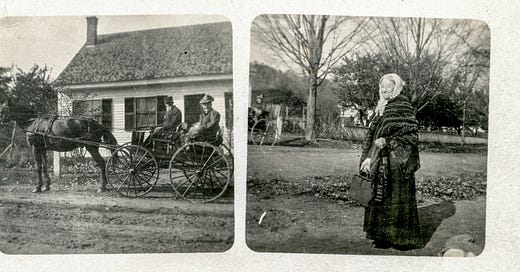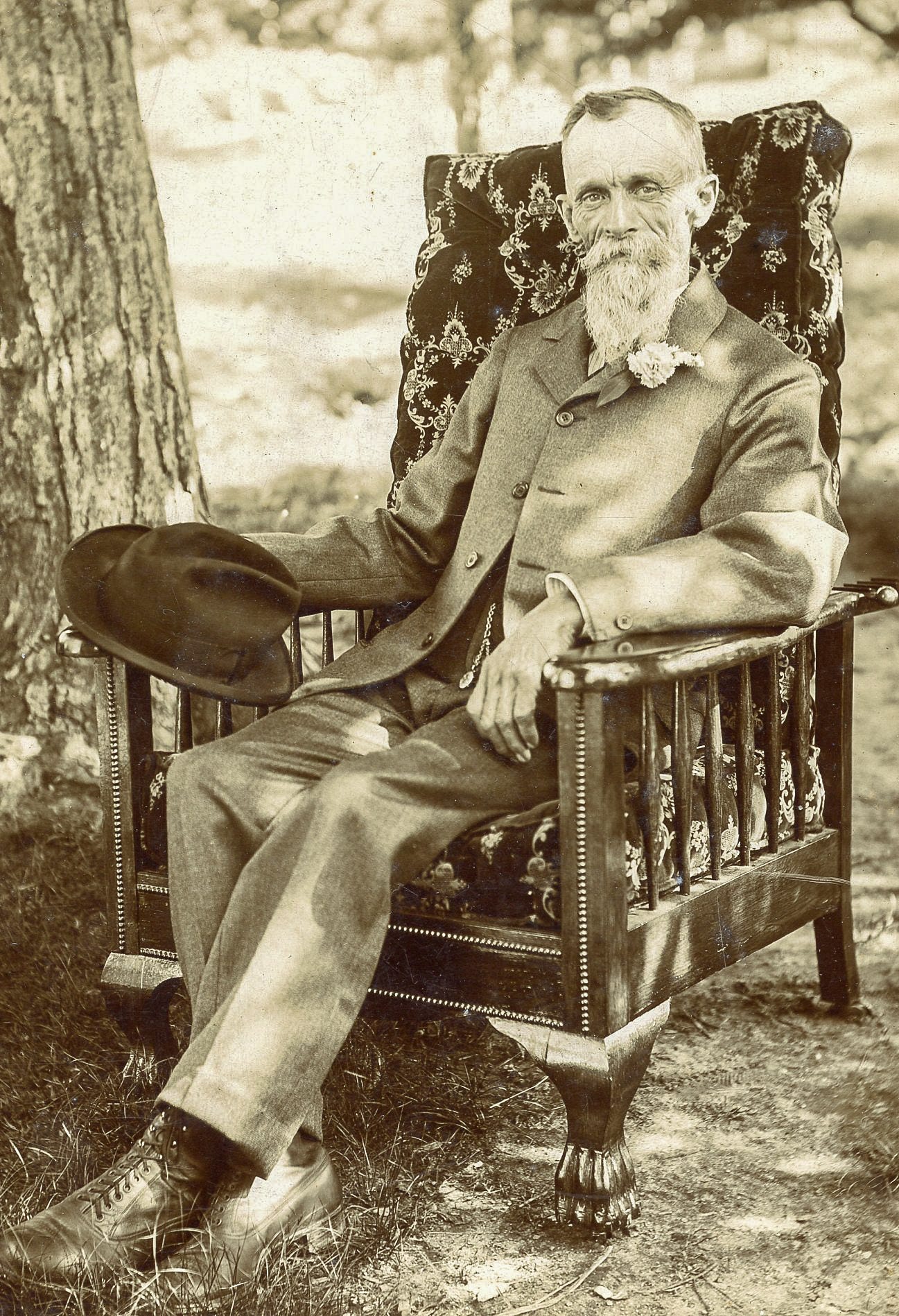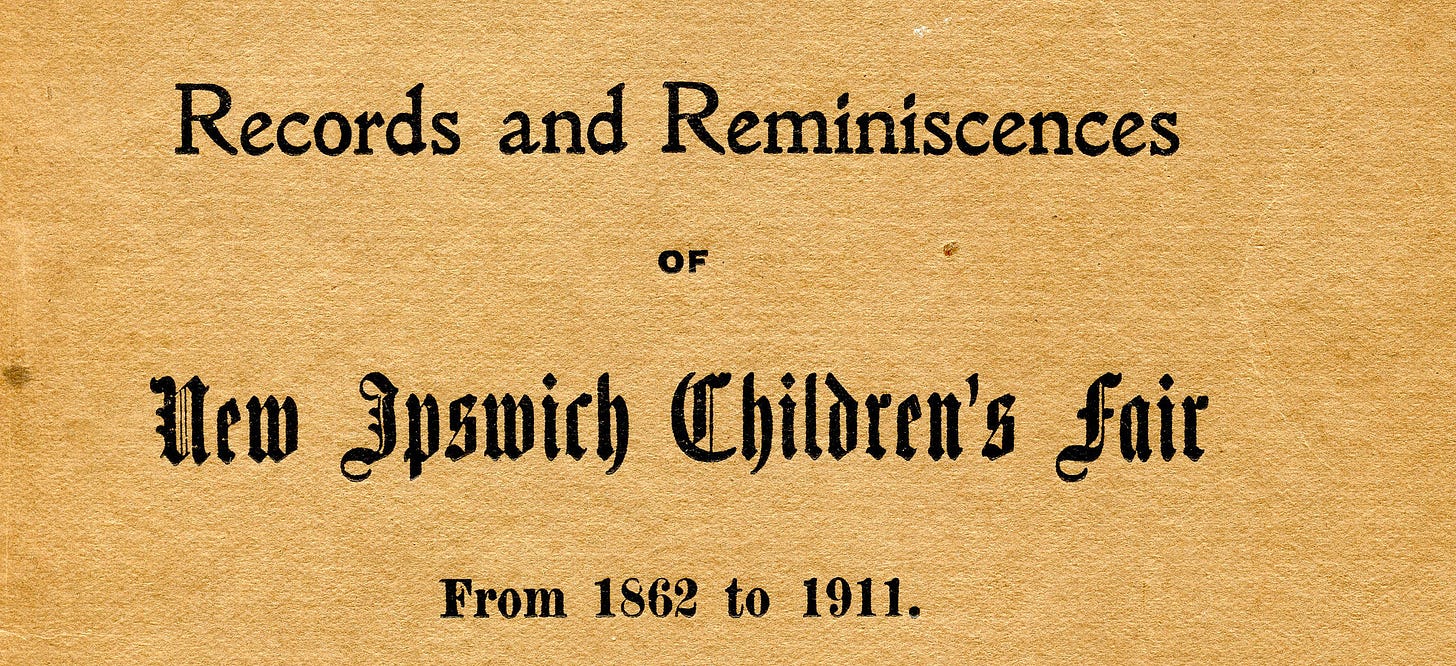First photo is of George Hardy with his wife in the carriage. Presumably the second photo is his wife. I believe her maiden name may have been Alice M. Franklin after researching the Chandler book of The History of New Ipswich.
A very nice portrait of George Hardy taken by Leon L. Willard, the town photographer
On this day - July 12, 1908
James Roger diary entry
12th (Sunday)
Very warm day. Communion Service today Dispensed by Mr. Thompson, Members met after to discuss ordination of Mr. Peacock. Meeting next Sunday. C.E. at night topic: “Character & Courtesy”
Leader Phil Taylor. Thunderstorms in afternoon, but no rain.
On this day - July 12, 1897
William Jurian Kaula diary - no entry
The Birth of the Fair (Continued pages 10 - 11)
The ladies to whom had been assigned the management of the food supplies, necessary then as now for the success of any social occasion, accepted their offices (shall I say meekly), no, but in a Christian spirit, and all interested in the matter did. all they could to insure a success for this first Fair for which there would be so limited a time for preparation. It was to be held in the former audience room of the old church,. on the ground floor, now remaining, divested of its old-fashioned, square box pews with hinged doors, except a row left at the east and west sides of the room against the walls. Time fixed for the Fair, "Wednesday, in the third week of October."
The room where it was to be held was large, comprising all the space not occupied by the vestibule, which held the stairs to the room above, if I remember rightly, and a corner devoted to fuel. There was a long table at the west side of the hall for the reception of articles to he sold at auction-farm and garden products, needle-work, whatever might be offered.
At the east side a table was filled with general refreshments to be sold by the piece," as it was expressed. I write up this first Children's Fair from memory, finding no other. record. And memory has been faithful. How distinctly it all comes before me! The Church Choirs of the reunited. Congregational Churches had scarcely become consolidated, but an attempt was made to have children's singing a part of the opening. Mr. Stephen Sylvester had met the young people and had rehearsals, and quite a large band came marching through the entering door at the appointed hour, the older ones, members of the church choir, singing a hymn written for the occasion.
I will give this hymn in full as a specimen of the kind of songs in which the children of our town have joined on succeeding Fairs. An inspiring tune had been selected from the still new army songs that were being sung by the "Boys in Blue' at the front. It was sung with commendable zeal as they marched around the hall, front of the auction table and passed up the space where the pulpit had formerly been, and mingled with the throng who waited to see how this new organization was to be conducted. I think there was prayer and a few brief speeches, and following these, more singing; the purchase and partaking of refreshments with lively sociability; then an animated auction was attended, at which there was merry competition and playful rivalry, each bidder saying inwardly, "It is all going for a good cause."
The name of the donor and to what its proceeds should be given was appended.
We thus became acquainted with our fellow-townsmen's
leaning and sympathies.
Mr. Wm. W. Johnson, of Bank Village, acted as auctioneer, and never failed for all the years to be present to give his services gratuitously till called heavenward.
The Fair and its outcome was a decided success, in every way, and those who had part in its inauguration felt more than rewarded for their labors.
When the report of the net proceeds of the first Fair was given church, and the destination of the sums raised, a new thrill of conviction of the truth of the words of Jesus, "It is more blessed to give than to receive," came to the heart of every contributor.
I find in Mr. Obear's private journal, date of October 21st, 1862, Children's Benevolent Fair at Church. It went off to the satisfaction of all concerned."
The sum raised was sixty-five dollars for the various objects. named. It will be remembered we were raising supplies for the union army, paying $200 for the support of a teacher among the freedmen, and living at largely increased cost, with no prospect of immediate change. It had been a success, and time has proved that it came to stay.





